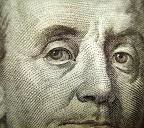Why Darwinism is a Useless Theory
Unless you’re a Darwinian.
I know this has been said before, perhaps more recently by the philosopher Jerry Fodor (though, as often happens with philosophers, there are differing views on what he meant). But I think it can be put more simply. So here goes.
Consider the theory Stuff Happened. This is an incredibly powerful theory, because it explains everything. Why is it raining outside? Stuff happened. Explained! Why did I run out of milk today? Stuff happened. Oh my gosh, explained! Why do birds exist? Stuff happened … over millions of years. Explained again! Brilliant!
Or absurd? Of course, there is a sense in which Stuff Happened does explain everything. Because everything has a cause, and whatever that cause was, it was stuff happening. So the theory is true. Problem is, it also explains nothing. In particular, it doesn’t explain why X happened instead of Y. That makes it a useless theory.
Classical Darwinism states that all speciation (change from one species to another) is due to the interaction of random mutations and natural (i.e. environmental) selection. Remember, Stuff Happened is a useless theory despite being true, so the truth of Darwinism is not the issue here. For the purpose of this argument, we can set the truth (or otherwise) of Darwinism aside. Phew!
Does Darwinism explain anything? On the face of it, it seems to. Why are polar bears white? Genetic mutations (some bears were albino) and natural selection (non-white bears were easier to spot by predators, so they got eaten before they could reproduce. Leaving only albino bears who were less visible against the snow). Explained!
Why do birds exist? OK, nobody really knows, but it’s speculated that some dinosaurs grew feathers to keep warm (wait, didn’t dinosaurs have scales? Oh, the scales changed into feathers! Okaaaay). Also, the environment selected for other mutations, like shorter tails, stronger shoulders, etc, so they could fly longer distances. In other words, stuff happened. A lot of stuff … over a very, very long time.
Notice that the first example seems to actually explain why polar bears are white and not some other color? In several experiments with peppered moths, it was found that moths that matched the color of the trees were more likely to survive and therefore reproduce, presumably because they were less visible to predators. So the polar bear theory is quite plausible, especially since some other land species in the Arctic (such as the snowy owl and arctic hare) are also white.
Unfortunately, very few Darwinian explanations have that kind of specificity. When they do, it’s usually only within a narrow range of phenomena involving few (or controlled) variables, which don’t in themselves prove, or rely on, the theory’s main claim, that all speciation is caused by mutations and natural selection. In the narrow range that has specificity, the actual explanatory work is done by assumptions in Darwinism that have been made by animal breeders for centuries, not by Darwinism per se (i.e. as a general theory of the origin of all species).
Most Darwinian accounts that claim to support, and draw from, the general theory are more like the second example, lots of hand-waving and just-so stories to fill the gaps between a few fossils labeled ‘transitional’. It’s worth repeating that, as with Stuff Happened, the truth of Darwinism is irrelevant to the question of its usefulness. It is very likely true that mutations and natural selection played some role in how birds came to be the way they are. It is even more true that Stuff Happened had everything to do with it. But neither theory explains why birds are this way rather than that.
It doesn’t help that most Darwinists believe that evolution is unrepeatable. That’s a shame, because precise repeatability is what distinguishes science from say, history. ‘Repeatability’ means being able to predict that X is a controlling factor for Y. If (but not only if) I have dinner, the sun rises the next day. But my having dinner is not a controlling factor in the sun rising. I cannot, even in theory, use my eating habits to move the sun in the sky. But if I could stop the Earth’s rotation, I would be able to stop the sun rising. So the Earth’s rotation is a controlling factor in the rising of the sun.
History is an interesting case in point, because it can make repeatable predictions based on probability rather than certainty (e.g., ‘If you drop bombs on a neighboring country, they’ll probably bomb you back’). But the paleontologist Stephen J. Gould famously stated that evolution is “a staggeringly improbable series of events … utterly unpredictable and quite unrepeatable.” (1989: 14, italics added).
What he means by ‘unrepeatable’ is, if you wound the evolutionary clock back to time T1, you’re unlikely to get the same result at T2. So he’s effectively conceding that historians are better than paleontologists at predicting that Y follows from X, because unlike evolution according to Darwinism, human history is, at least probabilistically, predictable and repeatable.
So if Darwinism can’t make predictions, outside of controlled environments or with only a few variables, how is it useful? Well, it offers a naturalistic narrative, one that accords with the methodological naturalism of science. ‘Methodological naturalism’ simply means that scientists avoid referring to supernatural intelligences (as distinct from natural ones such as humans or animals) to explain phenomena.
But note that this is a methodological assumption; a professional norm, if you like. But it is a norm that limits science to naturalistic theories. So Darwinism is useful, to Darwinists, who prefer a naturalistic theory of the origin of species, however otherwise useless that theory is.
